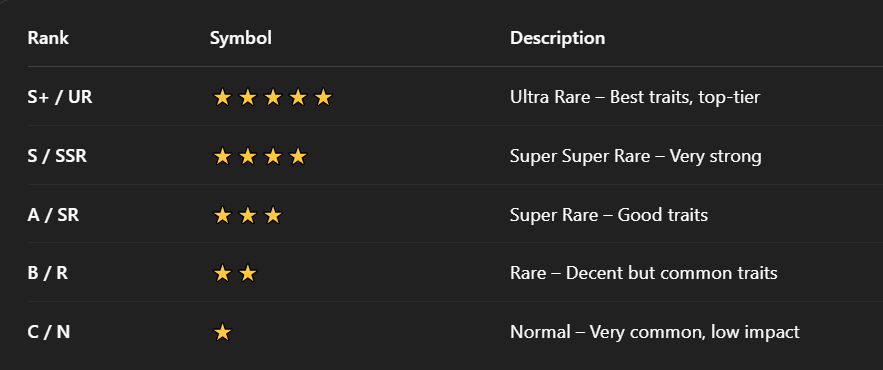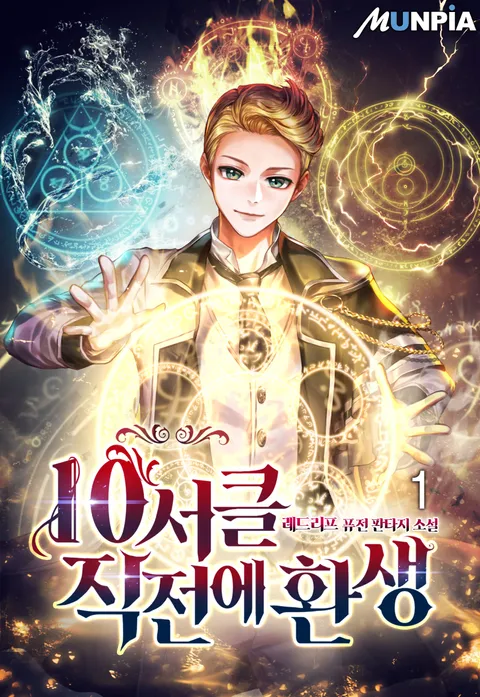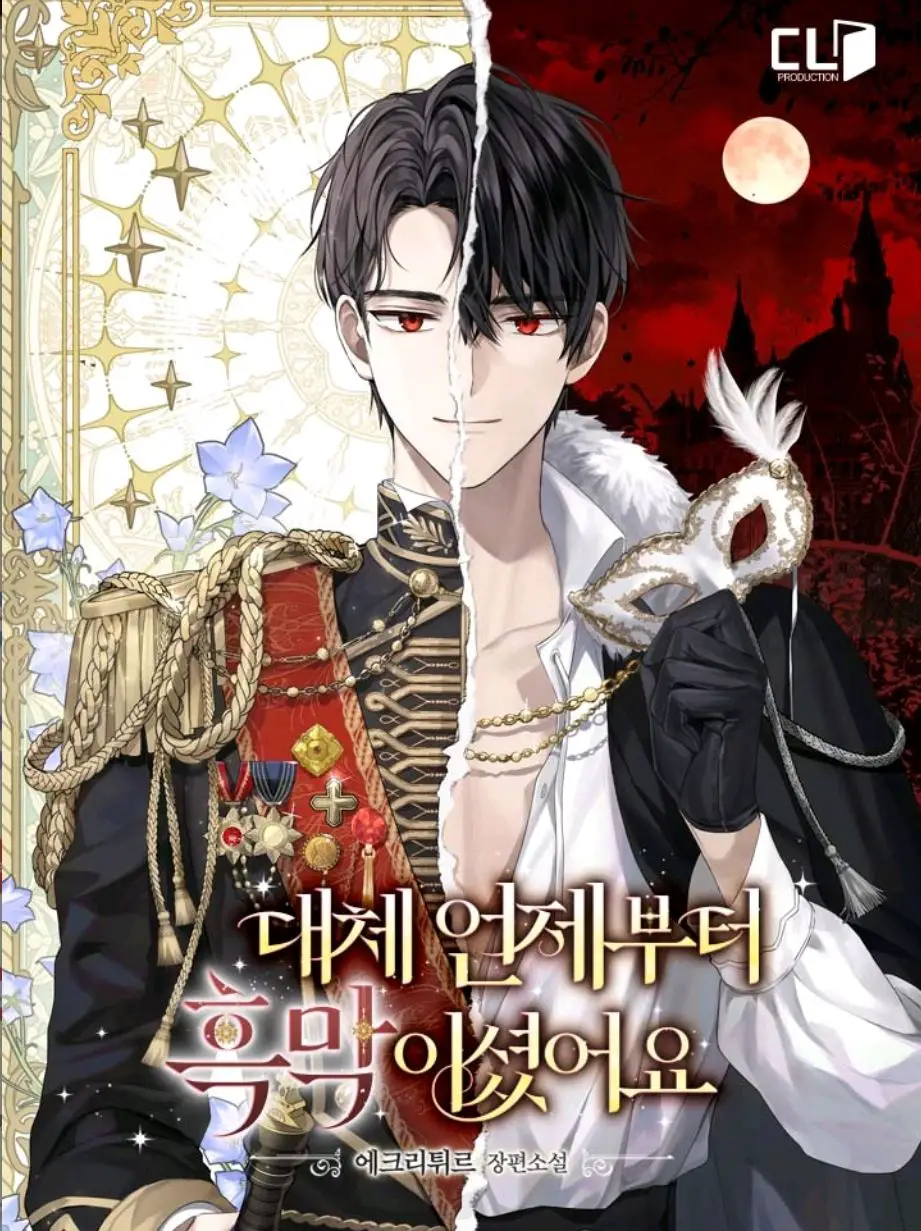Surviving in The Idol Game (5)
B0, in terms of stats, meant a score of at least 81. Since my singing stat was 79, I had to raise it by 2 within 19 days to complete the guide mission.
The timeframe wasn’t long, but since the 70s range was still relatively low, the marginal utility was high. So if I poured all 19 days into vocal training, I figured the mission wouldn’t be too hard to clear.
Still, there was a way to shorten that time a little. It did involve a bit of luck, but there was something that could instantly cover for lacking stats.
“First, I’ll unlock a trait.”
And so, I prepared for a street performance.
***
There was a small stage set up in a park near T Hospital where busking was allowed. Calling it a “stage” might be generous — it was really just a slightly larger bench placed at an intersection — but the important part was that it was a space where I could sing.
My goal today was to perform here and unlock the trait draw.
“Not bad.”
Objectively speaking, 79 wasn’t a terrible score. In-game, a C+ was considered the level of a trainee, and the upper-mid C+ range — like 79 — felt like it was right on the border between amateur and professional. Someone who could maybe make a living off it, barely.
From testing myself in various ways, I concluded I wasn’t good enough yet to sing in a noisy or crowded place. My tone was decent, but I lacked vocal strength, and my resonance was weak.
So I picked a relatively quiet area with a fair number of passersby, where I could be close to the people. Now that I was actually here, I felt like I’d made the right call. It was a little past noon on a weekday. The park was filled with people taking leisurely strolls or killing time.
I took the acoustic guitar from the case I had slung on my back and tidied up my surroundings. I’d learned to play the guitar in eighth grade. I hadn’t touched it since the one I used in eleventh grade broke, but somehow, a guitar case had been wedged behind some moving boxes in my studio apartment.
Still, I’d once been completely into it, and there were a few songs I could still play along to while singing. After practicing in a rush, I found a few that I could play decently well, so I brought it along. Maybe because I was younger again, my fingers moved better.
“Not exactly what you’d expect from an idol…”
But whatever. I was going to make use of everything I had. As I pulled out the guitar, a few people walking by started paying attention. Some had already stopped nearby, parking their wheelchairs to watch.
“These are people who can afford to wait if there’s something worth watching.”
The guitar was a prop to catch their eyes, and a tool to set the mood. I connected it to the amp I had brought and adjusted the sound. It didn’t need to be too loud — I didn’t need a huge crowd. What mattered wasn’t the number of spectators but their level of immersion.
Fewer people might actually be better. It would make the atmosphere more intimate and help them focus on the stage.
What I was aiming for now was to unlock the [Trait Draw]. The mobile game I used to play, Idol Survival: The Beginning, was a training & management simulation game where you nurtured various characters from trainees to superstars through multiple branching storylines.
The game’s content was gradually unlocked as characters grew, and what was considered more important than their stats when evaluating how well you raised a character was their “traits.”
And I remembered the unlock condition for the trait draw very well:
[Give an audience an unforgettable memory. (0/1)]
“Unforgettable memory” — though vague — essentially meant “how complete or polished the performance was.” You had to impress the audience enough to move them emotionally. Stat-wise, that meant a minimum performance quality score of 90.
Though it was an idol simulation game, as with any gacha RPG, it also had rankings — and the potential stat ceiling was defined by a character’s grade. Grades weren’t based on growth speed but on growth potential.
SR: 90, SSR: 95, UR: 100.1
So 90 was the ceiling for an SR character. The trait draw, unlocked by reaching a score of 90, was normally a mid-to-late-game feature.
However, characters that started off with high grades and exceptional base stats could unlock it early by simply fulfilling the “stage experience” condition through busking or auditions.
“I meet the conditions too.”
My singing and dancing stats were awful, but my charm stat was 98 — so system-wise, I had no problem. Still, there was something bothering me.
“I don’t know how the charm stat affects performance.”
Singing and dancing stats were relatively straightforward. They measured how well you could sing or dance — with subcategories like expressiveness and emotional impact — but they never stepped outside the realm of singing or dancing.
But the charm stat was broader — covering appearance, charisma, presence — and honestly, there was no clear definition for what it even was. I understood it as a kind of overall measure of how captivating you were, how well you could enchant people — but it lacked any concrete form or measurable criteria.
That’s why I was worried. I didn’t know how to leverage it.
In the game, you just tapped a few buttons and it was done. But now that I had to create the stage myself, I couldn’t help but think it through.
“It’s not like I can just sit there showing my face and call it a performance…”
So, I did my best to prepare a proper performance within my means.
To avoid direct confrontation with my weak spots, I skipped dancing. It didn’t suit the setting anyway, and my stat was too low — no matter how much I tried to mask it, it’d be obvious. That would ruin the completeness of the stage.
In the end, I had to rely on my strongest stat — singing — but even then, my skill was well below the target score. So I decided to reduce the weight of singing in the performance by playing an instrument. This time, the real key wasn’t the song itself.
It was the atmosphere — the kind that made people want to remember this moment for the rest of their lives.
My role was to help listeners get lost in their own feelings. The song was just a trigger. Regardless of my skill, what mattered was that each member of the audience could fill the performance with their own story.
To do that, I needed storytelling.
The January weather was cold, and my fingers were a bit numb from being exposed, but I warmed them up as best I could. Luckily, the day was unusually mild for winter, and people who were out for lunch strolls didn’t go right back in — instead, they glanced at me with interest.
“Glad the sun’s out today.”
This park was mostly used by patients, their caregivers, visitors, or hospital staff.
Especially because the pediatric ward was well-known, I’d been hearing bursts of high-pitched children’s laughter from the moment I entered the park.
“Hello, I’m Lee Hanhee.”
After finishing my prep, I took off the mask covering my face and made eye contact with each person who had waited.
“There’s a song I used to listen to a lot whenever I needed comfort. Today, I’d like to play it for you. I hope it brings you comfort as well.”
I took a deep breath and placed my left hand on the chords. It was the song that had made me want to learn guitar — the one I used to hum every night before bed back in middle school.
— While waiting for you, one day I realized
That there’s a life where one speaks
And sees the world differently,
A life of loving.
This song, which brings out the acoustic guitar’s strengths and the emotions only an acoustic can provide, wasn’t one that required great technical skill to sing. What mattered was how well the lyrics were delivered.
— Even if I come to a stop,
Even if I’m left behind…
It was an old song, one that anyone might have encountered at least once in their life. The original featured a deep and smooth male vocal tone, but I changed the chord progression slightly.
I didn’t want it to feel too heavy with introspection. Life is hard enough without adding more weight, so I arranged it more lightly. Rather than forcing out a deep bass that didn’t suit me, I leaned into the natural tone of my voice.
— Not moving forward,
Even going backward,
That too, is life, is living.
The guitar solo stretched on. Sometimes, silence says more than words.
I made eye contact with a child crouching in front of me, not sure when they had come closer. A small smile escaped my lips, blending into a soft hum.
— Even if I lose my way
And it takes a while to return—
The chorus was originally sung powerfully in full voice, but I didn’t do that. Instead, I softened it, blending in a slight falsetto. The audience was close enough to make eye contact. There was no need to shout to get the message across.
— If you come back to me again,
I will be happy— I will be truly happy.
The elderly couple in wheelchairs, tightly holding each other’s hands—what memories might they be revisiting in this moment? How will the mother and child holding each other tightly remember this time? Between those gently wiping tears, the quiet guitar played on.
***
[Trait Unlock Available]
The long-awaited message popped up.
Traits sometimes supported your stats, and other times helped with events. Sometimes, you’d
get a completely useless one, but most of the time they were beneficial—mainly because you had so few chances to get them.
“When a trait pull fails, it’s fatal.”
Usually, how your traits lined up determined the difficulty level of the game.
For example:
[God of Variety Shows (S) Sense +80%],
[God of Acting (S) Acting Skill +80%] — These kinds of traits were basically garbage. They had nothing to do with actual game progression. Total duds.
Traits like [Energizer (A) Fatigue -50%], or [Strong Mind (A) Stress -50%] weren’t bad, but they weren’t particularly desirable either. There were too many other traits that gave better returns, and it felt like a waste to occupy a slot with one of these.
Traits such as [The Camera Loves Me! (A) Presence +50% in front of cameras], or [Competitive Spirit (A) Contest Win Rate +7%] were preferred because they directly helped in performances. “Competitive Spirit” in particular was considered practically mandatory later in the game due to how powerful it was.
But the best ones? Those that directly increased your stats.
[You Have an Aura! (S) Charm +3],
[I Want to Keep Listening! (S) Singing +3],
[I Want to Keep Watching! (S) Dancing +3] — These shined the most in the later parts of the game, where increasing your stats became more difficult. They could allow SSR-tier characters to surpass their stat cap of 95 and even compete with UR-tier ones.
“I really made it big with that.”
A well-developed SSR could rival or even outperform a mediocre UR. Stat-wise, the difference could be minimal, and depending on the situation, SSRs were even preferred.
“Rather than 100/92/92, I’d go for 95/95/95 with good traits.”
With stat-boosting traits, even an SSR could become the ace of the team. Traits had that much power—they could transcend base rankings and dramatically affect balance. That’s why a failed trait pull meant starting all over again. Otherwise, you’d fall behind every time in player-versus-player competitions.
“That’s how important it is.”
Naturally, I was aiming for [I Want to Keep Listening! (S) Singing +3]. It would help immediately and, as a top-tier trait, would become more valuable the higher my stats went.
I took a deep breath and steadied myself. Looking at the transaction screen hovering in front of me, I signed. The familiar office background appeared, followed by an animation of a puppy tearing open an envelope.
“One dog, two dogs, three, four…?”
The colorful lights started flashing between the multiplying dogs—an image that triggered some light trauma. I shut my eyes tight, half expecting a car to come crashing through even though I was indoors.
But this time, nothing happened. Feeling the clammy dampness of cold sweat on my back, I slowly opened my eyes.
[You have obtained: ‘Grown on Love (R)’]
***
SR: 90, SSR: 95, UR: 100.1 : 
Support me if you can :





